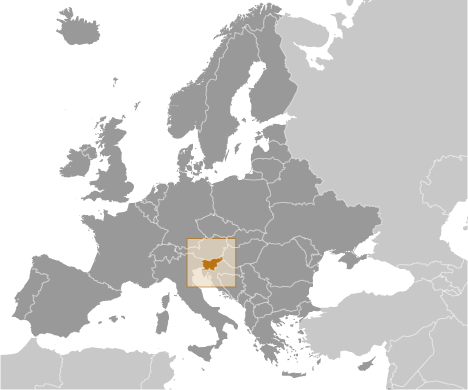HISTORICAL BACKGROUND
The Constitution of Slovenia states:
Article 38 […] Everyone has the right of access to the collected personal data that relates to him and the right to judicial protection in the event of any abuse of such data.
Article 39 […] Except in such cases as are provided by law, everyone has the right to obtain information of a public nature in which he has a well founded legal interest under law.
The Access to Public Information Act (ZDIJZ) was adopted in February 2003. It provides that "everyone" has a right to information of public character held by state bodies, local government agencies, public agencies, public contractors and other entities of public law. Requests can be oral or written. The bodies must respond in 20 working days.
There are exemptions for classified data, business secrets, personal information that would infringe privacy, confidentiality of statistics information, tax procedure, criminal prosecutions, administrative or civil procedures, pre-decisional materials that would lead to a misunderstanding, natural or cultural conservation, and internal operations. There is a public interest test with some exemptions. The exemptions also do not apply to use of public funds or execution of public functions and employment of a civil servant, environmental hazards, and improperly classified information.
There is a right of appeal to the Information Commissioner who can issue binding decisions. Its decisions can be appealed to a court. Fines can be imposed for destruction of information or failure to disclose without authorization. The Commission heard 106 cases in 2005, up from 62 in 2004. 11 decisions have been filed in courts. In November 2005, the office was merged with the Data Protection Commission.
The Commission also maintains the list of public bodies covered under the Act. In one of its first decisions, the Commissioner ruled that the office of the former president was covered under the Act.
Public bodies are required to appoint a leading official to receive requests and to create a catalog of the public information and make it available on the Internet along with the current and proposed regulations, programmes, strategies, views, opinions and other documents of public character. They must also publish annual reports on the Act.
The law was substantially amended in July 2005 to implement the EU Directives on Re-use of Public Sector Information (2003/98/EC) and Access to Environmental Information (2003/4/ES). The amendment also created the public interest test and gave the Commission the power to review information to see if it has been improperly classified.
The Ministry of Information Society was tasked to implement the Act but it has now been closed down and its functions have been transferred to the Ministry for Internal Affairs. Most of the state bodies have not produced reports on usage (only 333 out of 2610 were submitted). Of those that have, 15838 requests were filed in 2004, 80 were denied.
The Classified Information Act was adopted in 2001 to implement NATO rules on protection of classified information. It is overseen by the Government Office for the Protection of Classified Information. In April 2003, many of the security files of the UDBA, the former Yugoslavian secret police were published on a web site in Thailand by the Slovene Honorary Consul for New Zealand Dusan Lajovic. The documents were on over one million people including the officials, collaborators, and targets of surveillance. The current intelligence agency and the national archives claimed they did not have a copy of the files in their archives.
The Personal Data Protection Act provides for individuals to access and correct their personal information held by public or private bodies. It is overseen by the Information Commission.
Slovenia signed the Aarhus Convention in June 1998 and ratified it in July 2004. Article 14 of the 1993 Environmental Protection Act states that environmental data is public property. Access to information is under the ZDIJZ.
Under the Archives and Archival Institutions Act, most documents are available 30 years after their creation. Documents with data that could harm national security, public order or economic interests can be withheld for 40 years and those containing personal information can be withheld for 75 years or 10 years after the death of the person mentioned.
[Footnotes for this section are currently unavailable but will be posted the week of July 10. All footnotes and references are also available in the full study, available here.]
2004 freedominfo.org Global Survey Results - Slovenia





















